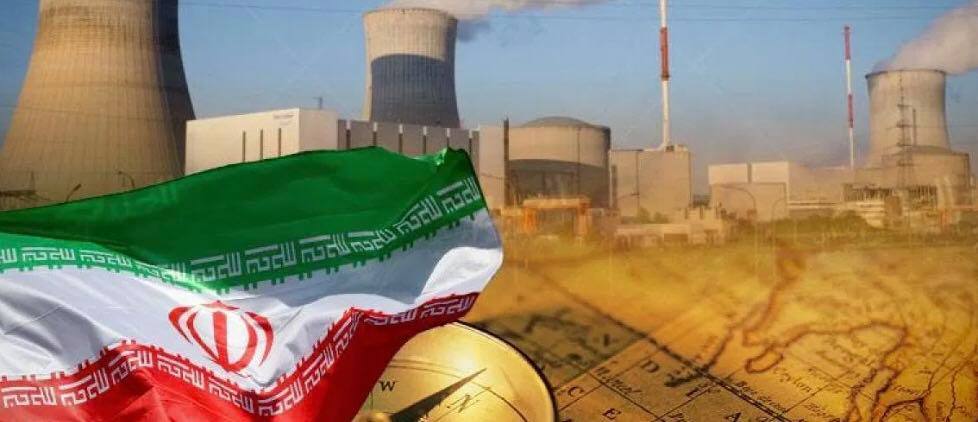Amidst fears of the Iranian active uranium enrichment program and likely its weaponization. The US – Iran Nuclear deal was formalized back in July 2015 by former US President Barack Obama. It was formally known as the Joint Comprehensive Plan of Action (JCPOA) that also involved several other world powers. Under its terms, Iran consented to dismantle much of its nuclear program and open its facilities to stringent international inspections in exchange for billions of dollars’ worth of sanction relief. It was then acclaimed as the most successful and bold foreign policy initiative by the US along with its rapprochement with Cuba.
The three Middle Eastern countries who opposed the deal were Israel, Saudi Arabia and UAE. The plea offered by them was that the agreement should remain confined to the nuclear file and should not involve discussion of regional issues without their participation. This deal did not last long due to extreme pro-Israel policies of former President Trump and the covert diplomacy by Saudi Arabia. The US withdrew from the deal in 2018, claiming it failed to curb Iran’s Missile program and regional influence. Despite US sanctions, Iran started ignoring limitations on its nuclear program a year later.
In 2020, Iran took more steps away from its nuclear pledges following a series of attacks on its interests which included the US targeted killing of General Qasem Soleimani in addition to the Israeli purported destruction of Iranian nuclear facility at Natanz and the assassination of a top nuclear scientist.
After the election victory of Joe Biden as US President, the US has shown inclination to resume dialogue with Iran for US to return to JCPOA, if Iran resumes compliance. President Biden has also indicated that he also wants to negotiate a successor agreement to address Iran’s other activities such as its missile program. The Iranian response has been to favor a US return to the deal but with categorical unwillingness to expand the accord further. It has also asked for the compensation for the damages caused to the Iranian economy by US sanctions, though highly unlikely.
As the US explores returning to the Iranian nuclear deal, Saudi Arabia and UAE have insisted that they must be included in future negotiations over its fate. The rationale put forward by both countries is that their inclusion would rectify the agreements supposed impediment: its failure to rein in Tehran’s regional policies. This stance is though in contradiction to their earlier position in 2015, along with Israel, to have the JCPOA restricted to nuclear sphere only. In reality the motive of the opposing states is not to strengthen the US- Iran nuclear deal but the continuation of US- Iran enmity to their political and diplomatic advantages.
In historical context, the Gulf States have also not shown any interests in stricter inspections of Iranian nuclear facilities or longer restrictions on Iranian nuclear program. In essence Riyadh would prefer an isolated nuclear Iran than internationally accepted unarmed Iran.
A review of the US- Iran deal since inception and various Middle East states opposed to its restoration, it will be imperative to identify available options for the US. The deep US engagement in Gulf region has come under severe criticism domestically due to weakening strategic importance of the Gulf. By recognizing Israel during the Trump era without any pre conditions, UAE and by implications Saudi Arabia has limited their bargaining options with the new US Administration.
Another significant major policy departure by the Biden establishment has been to denounce continuation of war in Yemen and embargo on supply of military hard ware to Saudi Arabia and UAE.
In order to diffuse any attempts to spoil the US- Iran negotiations, US needs to remove any doubt that the era of American dominance over the Persian Gulf is coming to an end. Only under those circumstances Saudi Arabia and UAE are likely to realize that regional diplomacy is their best option and agree to become the US partners in brokering peace. Another leverage available with US is to restore the re sale of military hardware to Saudi Arabia and UAE in return for their show of accommodation for the resumption of the US nuclear deal with Iran.
The future recourse of the US policies for the Middle East is likely to be complicated but certainly would be a departure from Trump policies in most instances. Former President Obama and his team, most of whom are now members of the Biden Administration, will be faced with the dilemma of keeping away the’ spoilers’ from ending diplomatic maneuvers but at the same time keeping them on board for a lasting regional and world peace .
* It is strictly forbidden to use the information and the studies contained on this site, except with prior permission from the administration and the authors Thualfuqar center.

